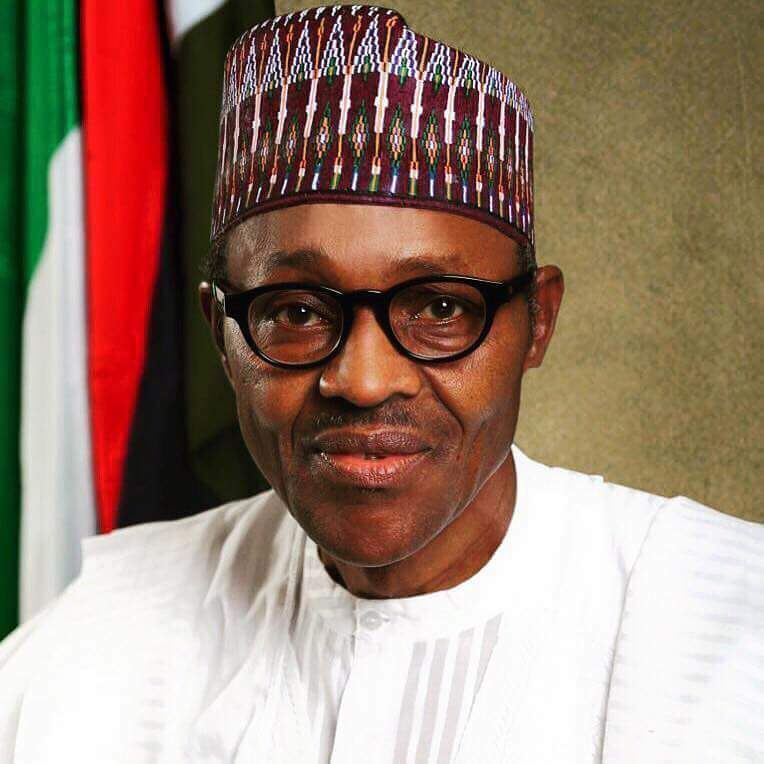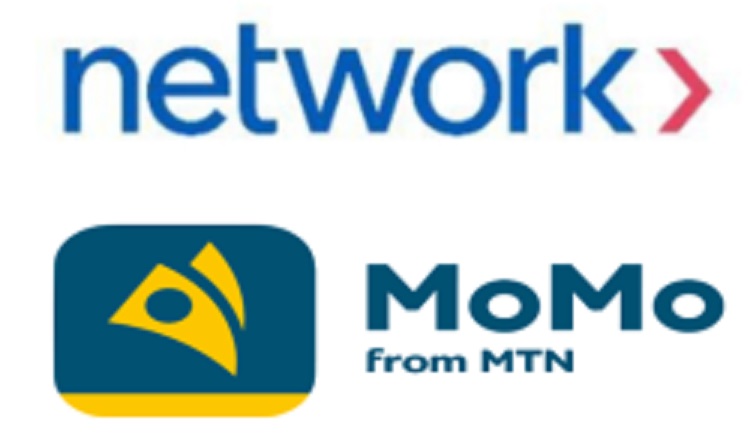Telecom
PI Decries President Buhari’s Refusal to Assent to Digital Rights Bill

Paradigm Initiative, pan-African digital rights advocacy organization has expressed disappointment over the decision of President Muhammadu Buhari to decline assent to the Digital Rights and Freedom Bill, stressing that “the refusal of the President to sign the Bill is a huge setback for human rights online in Nigeria.”
According to statement released by the organization on Wednesday, in Lagos, “the Bill was transmitted to the President on February 5, 2019, by the National Assembly.
“In a letter read on the floor of the Senate today, the president conveyed his decision to decline his assent to the bill, saying the Bill “covers too many technical subjects and fails to address any of them extensively.”
The group has promised to continue to work on getting the Bill passed into law.
Speaking on the development, ‘Gbenga Sesan, Executive Director of Paradigm Initiative, said, “work will continue on the Digital Rights and Freedom Bill in Nigeria and in other countries where Paradigm Initiative is now working with partners on the adoption of similar positive rights legislation.
“We would like to make it clear that the efforts of our coalition on the Bill are not a lost cause.
“Although the President’s refusal to assent the bill is a setback, we are currently liaising with our partners towards a strategy to take this work forward.
“At stake is the state of human rights online in Nigeria, which is too important to abandon, and which we have dedicated ourselves to protect,” Sesan added.
The group also acknowledged the President’s willingness to sign a bill focused on “the protection of human rights within the digital environment,” and vowed to work with the national assembly and other stakeholders to make this a reality.
While commenting on the development, Boye Adegoke, Paradigm Initiative’s Program Manager, said, “We also acknowledge the role that certain stakeholders played including the role of a government agency that premised their opposition to the Bill on the fact that some of Bill’s provisions are currently the subjects of various National Assembly Bills.
“We consider it strange that assent was denied to a Bill on the ground that its provision could conflict with proposed laws that have not been passed by the national assembly.”
The Digital Rights and Freedom Bill makes provision for the protection of human rights online and has been praised by experts for its forward-looking provisions on human rights and its potential to help protect users of digital tools.
Telecom
Starlink Becomes Nigeria’s Second-Largest ISP, Overtakes FiberOne

Elon Musk’s Starlink has become the second-largest Internet Service Provider (ISP) in Nigeria, surpassing FiberOne in customer numbers while Spectranet remains the market leader.

Elon Musk
This was revealed in a recent report by the Nigerian Communications Commission (NCC).
According to NCC’s Q3 2024 data, Spectranet maintained its top position with 105,441 active subscribers, despite losing over 8,000 users since December 2023.
Meanwhile, Starlink, which launched in Nigeria in January 2023, grew rapidly to 65,564 subscribers, adding 41,667 users in just nine months.
This pushed FiberOne to third place with 33,010 customers.
The report also showed that out of 241 licensed ISPs in Nigeria, only 124 had active users in Q3 2024, collectively serving 307,946 subscribers.
However, these numbers remain far below the dominance of mobile network operators such as MTN, Airtel, Globacom, and 9mobile, which together accounted for over 130 million internet users as of September 2024.
Starlink’s expansion has been driven by its satellite-based internet service, which provides coverage in remote areas where traditional ISPs struggle.
By the end of 2023, the company had already secured the third position with 23,897 users, marking a 113% growth from the previous quarter.
Its growth has also been supported by partnerships with Nigerian companies like TD Africa and Konga.
In 2023, Starlink briefly stopped accepting new orders in major cities, including Lagos, Abuja, and Port Harcourt, due to capacity issues.
Telecom
FG Commits $2Bn to Digital Infrastructure

The Federal Government says it has committed $2 billion to enhance Nigeria’s digital infrastructure, aiming to boost the nation’s economy and safeguard the digital identities and rights of its citizens.

Bosun Tijani, Minister of Communications, Innovations and Digital Economy
Bosun Tijani, Minister of Communications, Innovations and Digital Economy disclosed in Abuja on Tuesday while briefing newsmen on the forthcoming International Telecommunication Union, (ITU) Summit holding in Abuja from Wednesday to Thursday this week.
The ITU International Submarine Cable Resilience Summit will feature over 250 participants from 194 ITU member countries, with key representatives from the private sector and academia expected to attend.
Tijani who addressed journalists alongside Tomas Lamanauskas, the Deputy Secretary General of ITU,said the present administration was not making two billion dollars investments in digital infrastructures for the fun of it.
He said the present administration is committed to digital connectivity for the people to make lives more meaningful and impactful, adding that the investments would ensure that Nigerians enjoy the best quality of digital services and protection in the nearest future.
The ITU International Submarine Cable Resilience Summit aims to foster global collaboration, secure innovative solutions, and engage leaders from government, industry and international organisations to strengthen the global digital infrastructures.
“This investment is part of a larger vision to provide every Nigerian with access to high-quality digital services, while safeguarding their digital identities,” Tijani said.
The ITU International Submarine Cable Resilience Summit, co-hosted by Nigeria and Portugal, will explore innovative strategies to strengthen the security and resilience of submarine cables—vital infrastructure for global digital connectivity.
The summit is bringing together government leaders, industry experts, and international organizations to discuss ways to safeguard submarine cable networks, which are increasingly vulnerable to disruptions.
Tijani emphasized that the discussions at the summit will focus on finalizing a global declaration on submarine cable resilience, calling for heightened action from both governments and private sectors to protect digital infrastructure worldwide.
In his words, “Nigeria is not just solving local issues; we are taking a global leadership role in securing submarine cables, which are essential for digital connectivity”.
The summit will address the growing concern of disruptions in submarine cable networks, with an average of 150 to 200 cables being damaged or cut annually, severely impacting global digital connectivity.
To tackle these challenges, the summit will include key international organizations such as the International Maritime Organization (IMO) and the Food and Agriculture Organization (FAO), promoting coordination across industries such as telecom, shipping, and fishing, which impact submarine cable integrity.
Tijani also highlighted Nigeria’s leadership in the digital space, stating that while the country already boasts a robust submarine cable network, with around eight or nine cables landing in Nigeria, the key challenge now is expanding these networks inland and ensuring reliable, high-speed internet access for all Nigerians.
“We are committed to connecting every Nigerian, ensuring that digital infrastructure benefits all citizens,” he added. Tomas Lamanauskas, Deputy Secretary-General of ITU, praised Nigeria’s forward-thinking investments in digital infrastructure.
He highlighted that Africa is experiencing rapid growth in digital traffic, and Nigeria’s investments will play a pivotal role in ensuring the continent remains competitive on the global digital stage.
According to him, “This region is the fastest-growing for international digital connectivity, and Nigeria’s leadership is critical to ensuring Africa’s success in the global digital economy.
The summit is expected to provide a platform for robust discussions on enhancing submarine cable security, a critical pillar for the global digital economy, with over 50 countries participating in this essential dialogue.
Telecom
Network International Partners with MTN Group to Enhance Digital Payment Solutions Across Africa

Network International, a leading enabler of digital commerce across the Middle East and Africa (MEA), has been appointed as a Payment Processor – Issuing partner for MTN Group Fintech, Africa’s leading mobile financial services provider.

This partnership marks a significant extension of Network’s portfolio of issuer processing collaborations throughout the African continent.
With a footprint spanning over 50 countries and serving over 250 financial institutions, Network International brings its expertise to this partnership which will enhance MTN Fintech’s cutting-edge mobile services and provide even greater value to stakeholders and customers across Africa.
The partnership will focus on rolling out card issuance products across key MTN Fintech markets, starting with Rwanda which is already operational. Soon Uganda, Ivory Coast, and Nigeria will also be covered under this collaboration.
Network International will provide a comprehensive range of services, including transaction processing, card management and online fraud prevention. MTN Fintech users will benefit from a seamless experience accessing both traditional mobile services and innovative digital payment solutions.
Dr. Reda Helal, Group Managing Director – Processing, Africa and Co-Head Group Processing at Network International commented: “Our collaboration with MTN Group Fintech marks a major milestone for our outsourced payments services in Africa.
“It demonstrates our ability to successfully serve Mobile Network Operators (MNOs) via our fully-fledged processing solutions and our continued dedication and commitment to the African region.
“We are excited to support MTN Group Fintech’s growth strategy, and its business development plans across the continent.”
Cedric N’guessan, Executive for Payment and E-commerce at MTN Group Fintech added, “This collaboration with Network International is pivotal in enhancing financial inclusion across Africa and beyond.
“It enables our customers to actively engage in the global economy, aligning perfectly with our strategic goals alongside Mastercard to broaden access to digital financial services across the continent.”
MTN Group provides voice, data, fintech, enterprise wholesale and API services to more than 288 million customers in 14 African markets.

 General News2 days ago
General News2 days agoSANEF Appoints Uche Uzoebo as New Chief Executive Officer

 E-Financial2 days ago
E-Financial2 days agoFlutterwave Visits Tinubu, Seeks Support to List on NGX

 General News2 days ago
General News2 days agoAgain, Gambaryan, Binance Executive Accuses 3 Lawmakers, NSA of Demanding $150m Bribe

 Telecom2 days ago
Telecom2 days agoATCON Warns of Nationwide Telecom Blackout over Diesel Shortage

 Telecom2 days ago
Telecom2 days agoGlobacom Continues Upgrade of Network Infrastructure Across Nigeria

 News2 days ago
News2 days agoNITDA Inaugurates Technical Working Group to Drive Nigeria’s Digital Sovereignty

 E-Financial2 days ago
E-Financial2 days agoSERAP Drags CBN to Court over ATM Fee Hike

 News2 days ago
News2 days agoNigeria to Witness First Lunar Crescent on 28 February – NASRDA

























